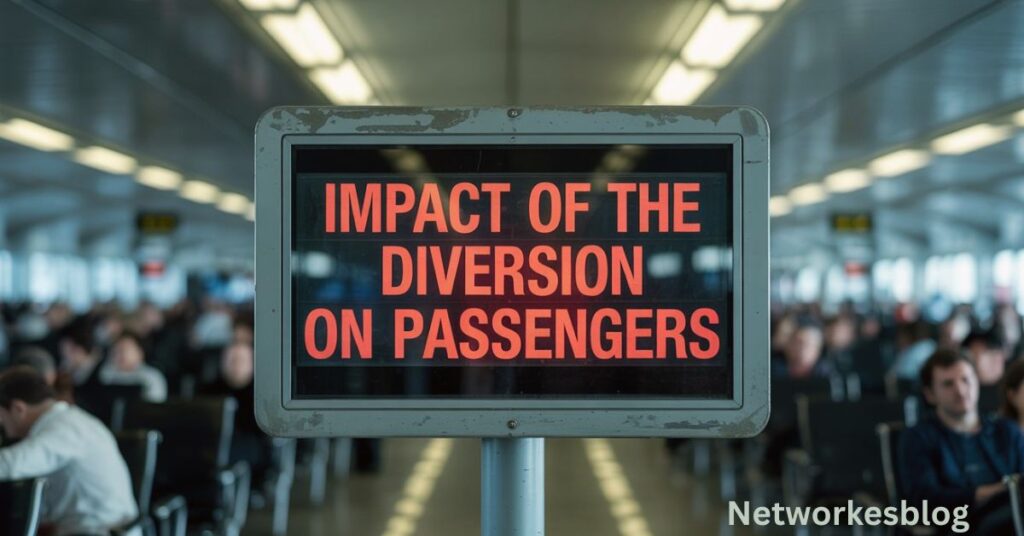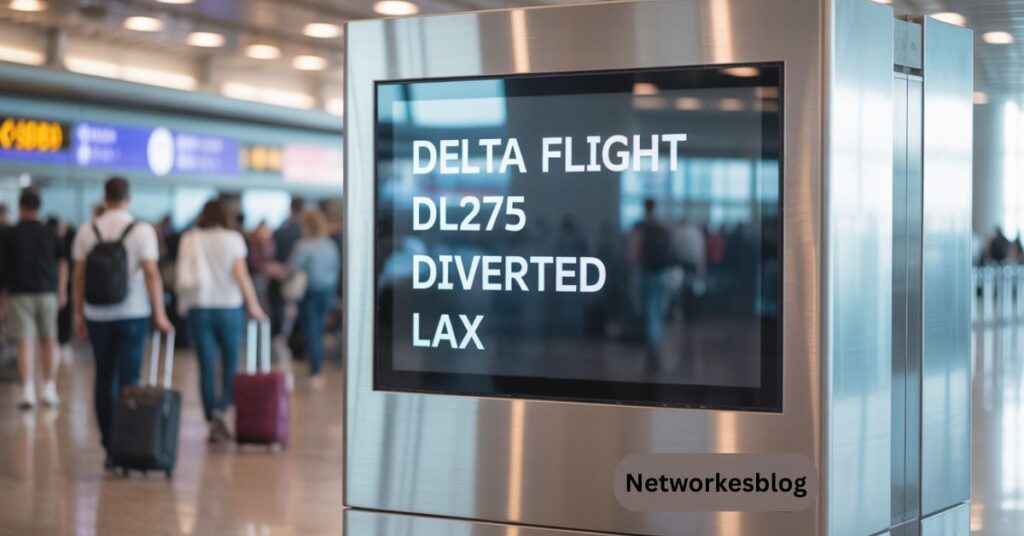Delta Flight DL275 was diverted to LAX due to unexpected reasons like weather, technical issues, or air traffic. Passengers on this flight were impacted by delays or rerouting, with Delta providing support for rebooking and accommodations when necessary.
In this article, we explore why Delta Flight DL275 was suddenly diverted to LAX, what went wrong, and what it means for future travelers.
Understanding Delta Flight DL275 and Its Significance
Delta Flight DL275 is a long-distance flight connecting major cities. Its importance lies in how it links people and businesses, making any change to its schedule or route a significant event. Understanding the flight’s usual path and purpose helps travelers stay prepared in case of disruptions.
Reasons for the Diversion of Delta Flight DL275
Flight diversions are often caused by various reasons:
- Bad weather: Strong storms, heavy winds, or fog can make it unsafe to continue to the original destination.
- Technical issues: If an aircraft faces mechanical problems, a diversion might be necessary for safety.
- Air traffic control: Sometimes, to ensure the safety of all flights in the air, air traffic control might reroute a plane.
- Emergency situations: If there’s a medical emergency or an onboard problem, the flight may be diverted.
Impact of the Diversion on Passengers

When Delta Flight DL275 was diverted, passengers experienced:
- Delays: The flight schedule was disrupted, causing passengers to wait longer.
- Rerouting: Some passengers may have been directed to different airports or rebooked onto another flight.
- Accommodation and services: Depending on the delay, Delta might have provided meals, hotel stays, or other services to make the situation easier for passengers.
Ground Services at LAX
At LAX, Delta’s ground services played a crucial role in handling the diversion. Here’s how:
- Passenger support: Delta staff helped passengers with rebooking flights and provided necessary information.
- Logistics management: The airline managed the disembarking of passengers and luggage, ensuring a smooth transition.
- Accommodation: If necessary, passengers were offered food vouchers or hotel accommodations until they could continue their journey.
The Aircraft Involved: Boeing 767-300ER
Delta Flight DL275 uses the Boeing 767-300ER, a large, reliable aircraft. Here’s why this model is ideal:
- Long-range capability: It can fly for extended periods, making it perfect for long-haul flights.
- Passenger capacity: It can carry a large number of people comfortably.
- Durability: The Boeing 767-300ER is known for its ability to handle a variety of challenges, including diversions.
How Delta Handles Flight Diversions
Delta has a well-prepared plan for handling flight diversions. The process includes:
- Safety first: The airline ensures the safety of passengers, crew, and the aircraft.
- Clear communication: Delta provides updates on the situation, keeping passengers informed.
- Rebooking and accommodations: If necessary, passengers are rebooked, and accommodations are arranged.
- Efficient ground services: Delta staff quickly manage any disruptions on the ground, helping passengers with next steps.
What Happened After Delta Flight DL275 Was Diverted?
After the diversion, Delta took quick actions to assist affected passengers:
- Rebooking flights: Passengers were helped to find new flights to their destinations.
- Passenger accommodations: If the delay was long, Delta arranged hotel stays and food for passengers.
- Aircraft recovery: Delta worked to return the aircraft to its regular schedule as soon as possible, minimizing future delays.
Impact on Future Flight Operations and Airline Response
A diversion can affect future flights in these ways:
- Delayed schedules: If the aircraft is out of service, it may cause delays to other flights.
- Replanning: Delta might need to adjust its schedule to make up for lost time and resources.
- Quick response: Delta works to fix the situation by prioritizing flights and ensuring that future operations continue smoothly.
Tips for Future Travelers to Avoid the Impact of Flight Diversions
Here are some tips to reduce the impact of potential diversions:
- Longer layovers: Having a longer layover gives more time in case of delays or diversions.
- Stay updated: Use Delta’s app or website for real-time flight updates.
- Travel insurance: This can help cover costs for unexpected situations like diversions.
- Pack essentials: Keep snacks, chargers, and important items with you, in case of delays.
How Should Passengers Prepare for Potential Flight Diversions?
To prepare for a potential flight diversion:
- Know your rights: Understand what the airline offers during delays, such as compensation or accommodations.
- Travel light: Keep important documents like IDs and flight details in an easily accessible place.
- Stay connected: Follow the airline’s updates and be ready for alternative routes or rescheduling.
- Plan ahead: Consider backup plans for overnight stays or rerouted flights in case of major disruptions.
FAQs
What’s the status of Delta Flight DL 733 today (LAX → DTW)?
DL 733 consistently operates daily. On July 6, it departed Los Angeles at 05:23 PDT and arrived in Detroit at 12:34 EDT-on time. Historically, this flight maintains a 98% on-time rate with average delays under 10 minutes.
Are there any Delta cancellations at Detroit Metro today?
Detroit Metro (DTW) recorded 5 flight cancellations today, but no indication that Delta specifically has mass disruptions.
What’s the status of UA 881 (ORD → HND)?
UA 881 is scheduled daily from Chicago O’Hare to Tokyo Haneda. On July 9, it departed at the scheduled 12:50 CDT and landed at 15:55 JST-marked “On time.
Is Delta Flight DL 274 operating today (HND → DTW)?
Yes-DL 274 operates daily from Haneda to Detroit. Historically, departure is at 15:15 JST, arriving around 14:25 EDT, with a typical flight time of 12 hours.
Are there direct Delta flights from Detroit to Japan today?
There is no direct Delta nonstop DTW → Tokyo (HND/NRT) scheduled today. DL 274 covers Japan → Detroit; the return is via Detroit → Haneda on other codeshare or nonstop services, but no DTW-originating direct flights appear scheduled today.
Conclusion:
In summary, the unexpected diversion of Delta Flight DL275 to LAX resulted from a precautionary response to an engine anti-ice issue during its Detroit–Tokyo leg. The Airbus A350 landed safely at LAX, where Delta promptly rebooked passengers, provided accommodations, and completed technical checks before returning the aircraft to service after roughly 18.5 hours. While this disruption affected schedules, Delta’s decisive action demonstrated strong safety protocols and commitment to passenger care.
